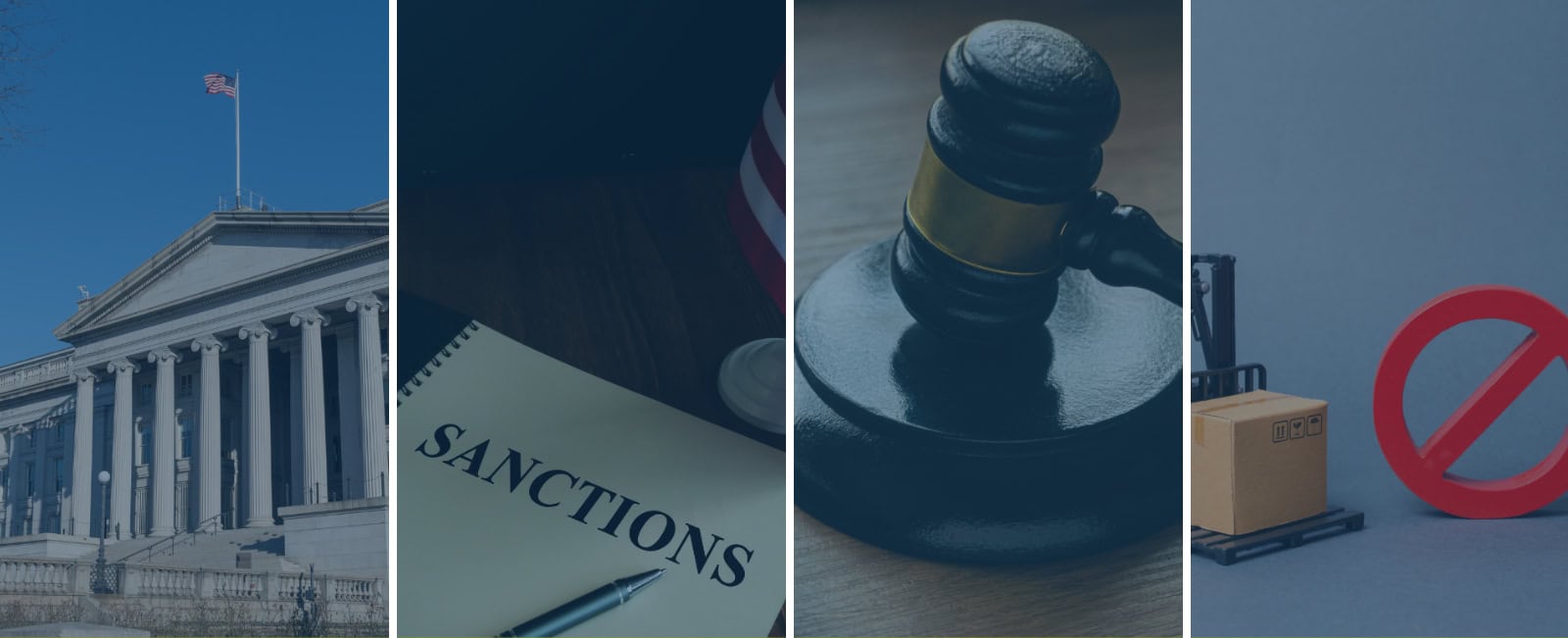Specifically, CBP created a new paragraph (k) in section 24.22 (19 CFR 24.22(k)) that sets forth the methodology to determine the change in inflation as well as the factor by which the fees and limitations will be adjusted, if necessary. The fees and limitations subject to adjustment, which are set forth in Appendix A and Appendix B of part 24, include the commercial vessel arrival fees, commercial truck arrival fees, railroad car arrival fees, private vessel arrival fees, private aircraft arrival fees, commercial aircraft and vessel passenger arrival fees, dutiable mail fees, customs broker permit user fees, barges and other bulk carrier’s arrival fees, and merchandise processing fees as well as the corresponding limitations.
USTR ANNOUNCES NEW ENFORCEMENT PRIORITIES FOR GSP
Under the GSP program, certain products from 120 beneficiary developing countries and territories can enter the United States duty-free. To qualify for GSP, a beneficiary country must meet 15 eligibility criteria established by Congress—these requirements include respecting arbitral awards in favor of U.S. citizens or corporations, combating child labor, respecting internationally recognized worker rights, providing adequate and effective intellectual property protection, and providing the United States with equitable and reasonable market access.
USTR announced a new effort to ensure beneficiary countries are meeting the eligibility criteria of the Generalized System of Preferences (GSP) trade preference program.
New focus for verification of GSP program includes:
- A “heightened focus” on concluding outstanding GSP cases
- A new interagency process to assess beneficiary country eligibility (the current petition receipt and public input process for country practice reviews will remain unchanged)
- The new additional process will involve a triennial assessment by USTR and other relevant agencies of each GSP beneficiary country’s compliance with the statutory eligibility criteria.
- If the assessment of a beneficiary country raises concerns regarding the country’s compliance with an eligibility criterion, the U.S. administration may self-initiate a full country practice review of that country’s continued eligibility for GSP.
- The first assessment period will focus on GSP beneficiary countries in Asia. This will be followed by evaluations of GSP beneficiary countries in other parts of the world in the second and third years of this process.
CLARIFICATIONS TO THE EXPORT ADMINISTRATION REGULATIONS FOR THE USE OF LICENSE EXCEPTIONS
(A) Clarifications for License Exception GOV
This final rule revises License Exception GOV, § 740.11, to make three clarifications. Specifically, this final rule revises paragraph (b)(2)(ii); adds a new note to paragraph (b)(2)(iii)(C); and adds a new note to paragraph (c)(1).
(B) Clarifications for License Exception STA
This final rule revises License Exception STA, § 740.20, to add five new clarification notes, along with making other minor clarifications.
COMMERCE FINDS DUMPING AND SUBSIDIZATION OF IMPORTS OF SOFTWOOD LUMBER FROM CANADA
On November 2, 2017, the Department of Commerce (Commerce) announced its affirmative final
determinations in the antidumping duty (AD) and countervailing duty (CVD) investigations of imports of softwood lumber from Canada.
Commerce found that mandatory respondents Canfor Corporation, Canadian Forest Products Ltd., and Canfor Wood Products Marketing Ltd. (Canfor); Resolute FP Canada Inc. (Resolute); Tolko Marketing and Sales Ltd. and Tolko Industries Ltd. (Tolko); and West Fraser Mills Ltd. (West Fraser), were dumping at margins of 8.89, 3.20, 7.22 and 5.57 percent, respectively. Commerce established a final dumping margin of 6.58 percent for all other producers and exporters of softwood lumber from Canada.
Commerce calculated final subsidy rates for mandatory respondents: for Canfor Corporation, 13.24 percent; for Resolute FP Canada, Ltd., 14.70 percent; for Tolko Marketing and Sales Ltd. and Tolko Industries Ltd., 14.85 percent; and, for West Fraser Mills, Ltd., 18.19 percent. Commerce also calculated a final subsidy rate for the voluntary respondent, J.D. Irving, Limited of 3.34 percent. Commerce established a final subsidy rate of 14.25 percent for all other producers/exporters in Canada.
U.S. DEPARTMENT OF STATE’S DIRECTORATE OF DEFENSE TRADE CONTROLS – WEB NOTICES
DDTC Discontinues ELLIE and DSP-119 Form
Effective December 1, 2017, DDTC will no longer accept form DSP-119 to amend the DSP-85. All pending DSP-119’s will be processed pursuant to 123.25 of the ITAR. Any DSP-119 form submitted to DDTC on or after December 1, 2017 will be returned without action. When amending the DSP-85, the applicant must submit a completely new DSP-85 along with a transmittal letter, signed by the Empowered Official explaining the amended change
DDTC Designates USML Category XIV(f)(7) as SME
Consistent with 81 FR 49531 (July 28, 2016), Category XIV(f)(7) defense articles are designated as Significant Military Equipment. Accordingly, any application to export Category XIV(f)(7) defense articles requires a DSP-83 non-transfer and use certificate.
CASE STUDIES
BANK OF AMERICA SETTLES 13 VIOLATIONS OF THE ANTIBOYCOTT REGULATIONS
The U.S. Department of Commerce’s Bureau of Industry and Security (BIS) has announced that Bank of America NA has agreed to pay a civil penalty of $44,625 to settle the following thirteen violations of the antiboycott regulations set forth at EAR Part 760:
• One violation of EAR § 760.2(a) – Refusal to do business
• Eleven violations of EAR § 760.2(d) – Furnishing information about business relationships with boycotted countries or blacklisted persons
• One violation of EAR § 760.5 – Failing to report the receipt of a request to engage in a restrictive trade practice or foreign boycott against a country friendly to the United States
PILOT AIR FREIGHT LLC TO PAY $175,000 TO DOC TO SETTLE ALLEGED EXPORT VIOLATIONS
Facts: In or about February 2015, Pilot Air Freight LLC a/k/a Pilot Air Freight Corp. (“Pilot”) of Lima, PA, caused, aided, and/or abetted a violation by the Regulations by facilitating the attempted unlicensed export of items subject to the Regulations from the United States to IKAN Engineering Services (“IKAN”), an entity in Pakistan listed on BIS’s Entity List. The items included an ultrasonic mill cutting machine, which is classified under Export Control Classification Number (“ECCN”) 2B991 and controlled for Anti-Terrorism reasons, and related electronical equipment, designated as EAR99, and were valued in total at approximately $250,287
Conclusion: A civil monetary penalty in the amount of $175,000. The payment of $100,000 shall be made to the U.S. Commerce Department within 30 days of the order. Payment of the remaining $75,000 shall be suspended through March 31, 2020 and thereafter shall be waved, provided that during the probationary period under the Order: Pilot has timely paid $100,000 to the Department of Commerce; has otherwise complied with the provisions of the Settlement Agreement and this Order; and has committed no other violation of the Act, or any regulation, order, license or authorization issued thereunder. Pilot shall complete two external audits of its export compliance program.
SETTLEMENT AGREEMENT BETWEEN THE U.S. DEPARTMENT OF THE TREASURY’S OFFICE OF FOREIGN ASSETS CONTROL AND DENTSPLY SIRONA, INC
Facts: Between on or about November 26, 2009 and July 5, 2012, DII subsidiaries UK International (“UKI”) and DS Healthcare Inc. (d.b.a. Sultan Healthcare), (“Sultan”), exported 37 shipments of dental equipment and supplies from the United States, directly or indirectly to Iran, to distributors in third-countries, with knowledge or reason to know that the goods were ultimately destined for Iran. OFAC determined that DII did not voluntarily disclose the apparent violations and that the apparent violations constitute a non-egregious case.
Conclusion: The U.S. Department of the Treasury’s Office of Foreign Assets Control (OFAC) announced a $1,220,400 settlement with DENTSPLY SIRONA INC. (“DSI”), a U.S. company incorporated in Delaware, the successor in interest to DENTSPLY International Inc. (“DII” and, together with DSI, “DENTSPLY”) to settle DENTSPLY’s potential civil liability for 37 apparent violations of § 560.204 of the Iranian Transactions and Sanctions Regulations, 31 C.F.R. Part 560 (ITSR)
BIODIESEL IMPORTS FROM ARGENTINA AND INDONESIA
The United States International Trade Commission (USITC) determined that a U.S. industry is materially injured by reason of imports of biodiesel from Argentina and Indonesia that the U.S. Department of Commerce (Commerce) has determined are subsidized.
As a result of the USITC’s affirmative determinations, Commerce will issue countervailing duty orders on imports of this product from Argentina and Indonesia. The Commission’s public report Biodiesel from Argentina and Indonesia (Investigation Nos. 701-TA-571-572 (Final), USITC Publication 4748, December 2017) will contain the views of the Commission and information developed during the investigations.
The report will be available by January 11, 2018; when available, it may be accessed on the USITC website at: http://pubapps.usitc.gov/applications/publogs/qry_publication_loglist.asp.
HARWOOD PLYWOOD IMPORTED FROM CHINA
The United States International Trade Commission (USITC) determined that a U.S. industry is materially injured by reason of imports of hardwood plywood from China that the U.S. Department of Commerce (Commerce) has determined are sold in the United States at less than fair value and subsidized by the government of China.
As a result of the USITC’s affirmative determinations, Commerce will issue antidumping and countervailing duty orders on imports of this product from China. The Commission also made a negative finding concerning critical circumstances with regard to imports of this product. As a result, imports of hardwood plywood from China will not be subject to retroactive antidumping or countervailing duties.
The Commission’s public report Hardwood Plywood from China (Investigation Nos. 701-TA-565 and 731-TA-1341 (Final), USITC Publication 4747, December 2017) will contain the views of the Commission and information developed during the investigations.
The report will be available by January 10, 2018; when available, it may be accessed on the USITC website at: http://pubapps.usitc.gov/applications/publogs/qry_publication_loglist.asp.


